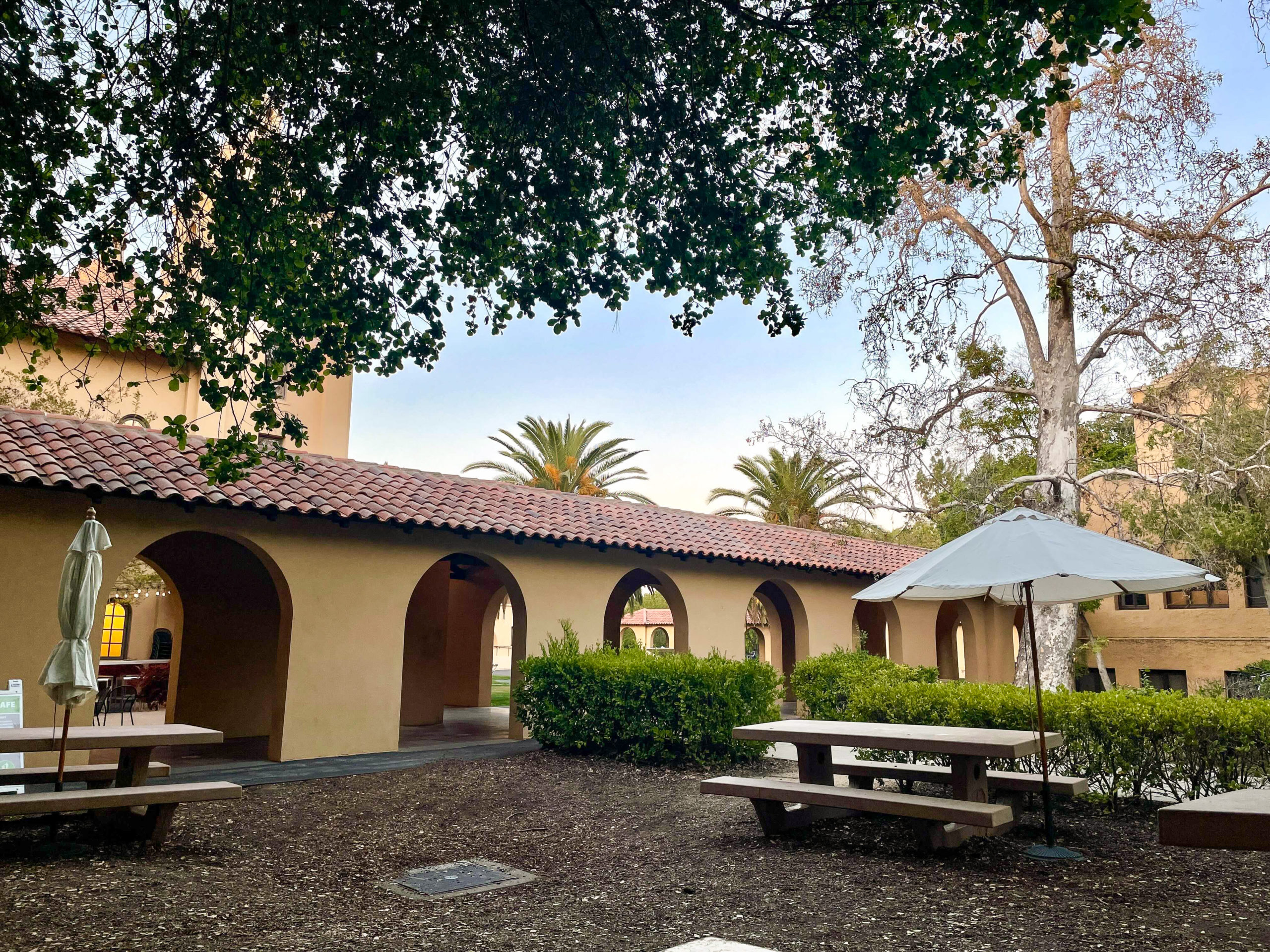After returning to campus for the first time in over a year, students may have found themselves with a case of the midnight munchies and nowhere to turn. Craving greasy fries from The Axe & Palm (TAP) after 1 a.m.? Tough luck. Due to pandemic-related staff shortages, late-night dining operations on campus remain shuttered indefinitely.
Prior to the COVID-19 pandemic, students could go to Arrillaga Family Dining Commons and Lakeside Dining for a late-night meal or for a place to work until the two dining halls closed at 2 a.m. Now, they close at 9 p.m., leaving students with few on-campus food options at night. Retail cafés — such as TAP and Coffee House (CoHo) — have also reduced their hours of operation, and Olives, the beloved sandwich shop located in Main Quad, is closed indefinitely.
The limited hours of operation are due to staffing challenges as the University resumes full operations, according to Residential & Dining Enterprises (R&DE) spokesperson Jocelyn Breeland.
“The hospitality industry has been devastated by the pandemic and this has created significant staff shortages across the nation and at Stanford,” Breeland wrote. “In some instances, volunteer staff from other areas of R&DE have been used to fill critical mealtime positions in dining halls.”
Prior to the pandemic, many students went to TAP to buy burgers, fries and milkshakes with their meal plan dollars after a long day of studying or after hanging out with friends on the weekend. The campus-favorite used to be open seven days a week, closing at 2 a.m. Monday through Saturday and 1 a.m. on Sunday. Now, its doors close at 1 a.m. on Monday through Friday and remain closed on Saturday and Sunday.
CoHo, which was previously open from 7 a.m. to midnight every day, now closes at 8 p.m. on Tuesday through Sunday and 10 p.m. on Monday. CoHo reduced its hours during the 2020-2021 school year because of staff shortages and the limited student population on campus at the time, according to Assistant Manager Mayra Mondragon. Though the company is working on resuming full operations, Mondragon said that it is unlikely that CoHo will be able to resume pre-pandemic hours this year.
Despite CoHo’s reduced hours of operation, its revenue and customer demand have not been substantially affected, according to Mondragon. She estimates that revenue has fallen by about two percent in comparison to pre-pandemic times.
Limited dining flexibility has altered the everyday habits of some students, as food availability plays a large role in students’ plans for activities, study sessions and social gatherings.
Ian Sills ’23 said that he no longer studies as late into the night now that late-night dining options are unavailable. Sills also said his reliance on food delivery services has increased due to the lack of late-night options. The limited hours have “been very bad on my wallet because I started Doordash-ing, which is considerably more expensive than just walking over and buying food,” he said.
For Kevin Martin ’22, the best part about late-night dining options was the opportunity to socialize with other students.
“It was just nice to have places to get out and socialize at night,” Martin said. But now, “you can’t go and gather anywhere outside of the dorms late at night, unless you’re trying to be out in the cold.”
More than the food, Martin said he missed “the fact that we can gather and hang out and be dumb kids.”
The article has been updated to reflect that TAP closes at 1 a.m. on weekdays. The Daily regrets this error.
